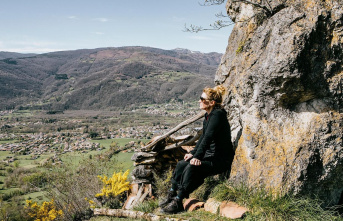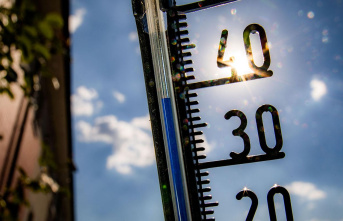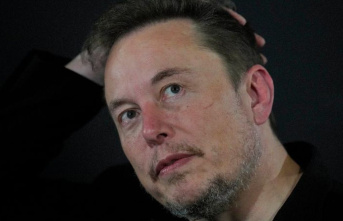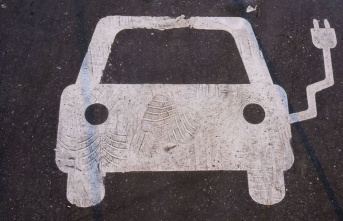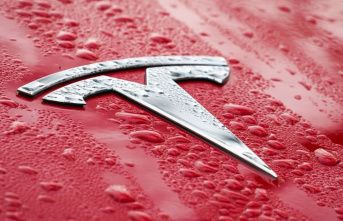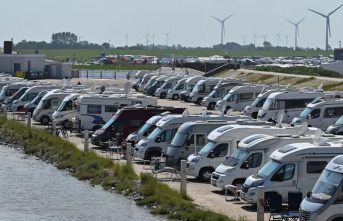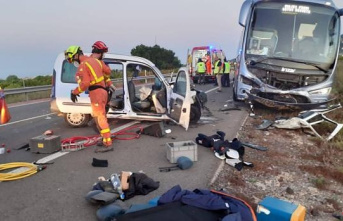They are the "Licoornes" and there is no misspelling. These nine companies made their public debut under the name "Licoornes" in June 2021. The two "o's" were there to remind them that they are cooperatives. Like Charles Gide, the French pioneer in solidarity and social economic (ESS), cooperatives were celebrated this year. Yes, a little.
The Unicorns chose a term that is reminiscent of the unicorns, the thriving start-ups in Silicon Valley. As if to claim that the SSE has changed, as it brings together cooperatives but also foundations, associations, and mutuals.
Although its core values, such as the mutualist spirit and the inclusion through employment of persons with disabilities or precariousness, are centuries-old, it has many young investors that have invested in some of the most innovative sectors of the 21st century, including energy (with Enercoop), financing (with La Nef), vehicle-sharing (Citiz), delivery by bicycle (CoopCycle), and telephony mobile. Marion Graeffly is the co-founder and CEO of TeleCoop.
This is more than a slogan. It was launched in November 2020 and is compatible with many other package distributors. It refused to enter 5G and is now trying to discourage its 4,000 customers ("the best mobile is the one that you already own"), encouraging them to limit their screen time, and even trying to convince them to avoid 4G because it uses three times as much energy as wi-fi.
TeleCoop appears to be cutting off branches from the branch that it is sitting on. Marion Graeffly corrects, "But not at any cost in reality because our objective isn't profit." It is first and foremost about spreading the principles of sobriety, sustainability and good health in society. To put it another way, to make profit as any private company but not at any cost to the environment or social. To make profit a tool to achieve one's goals, not an end in and of itself.
Enercoop is another Licorne founded in 2005 with 250 employees. Eugenie Bardin is in charge of public affairs. She says, "We claim the qualifier as a'militant supplier' by purchasing direct contract only French renewable electricity. In particular, wind power."
Enercoop customers are able to imitate employees and become members. Owning capital shares gives you the right to vote at the company's main strategic meetings. This privilege is not available in an ordinary company. Enercoop's customers "weigh" 20% and 15% respectively.
Eva Sadoun (founder and president of the platform) says that "this renewed governance is proof of democracy can find its way everywhere, even in companies," After eight years of existence, LITA.co now has 30,000 members. The company's success is proof that it does not exist solely to benefit a few. It can also rely on cooperation and collaboration, on social innovation, rather than on profit. One can live and prosper in capitalist societies while also being anti-capitalist based on the values one holds.
Anne-Catherine Wagner, sociologist, looked at her field survey on cooperative societies (Scop) to find this amazing singularity. She explains:
This year marks the 90th anniversary the death of Charles Gide (1847-1932), a discreet hero. Andre Gide's uncle, a jurist, economist, and professor at College de France, didn't invent the social-solidarity economy that was created at the end 18th century. He gave it a modern political spin. It was stripped of the tinsel Christian charity. Timothee Duverger is a historian and associate professor at Sciences-Po Bordeaux.
Gide's model for building everything isn't based on a cooperative of Scop-type workers, but rather the model of consumers like the current Camif. Gide is a model where consumers, who are primarily concerned about the quality of what is produced have every right to participate in governance. Timothee Duverger admits that his thinking was somewhat marginalized by the rise of welfare state and the success of capitalist models in the 20th century. The role he played in the lives of the consumer is still very relevant.
The SSE appears to be the right place at the right moment, as the French demand more attention, and "participatory democracy," is full of all its promises. It still has a small weight in the discussions, says Jerome Saddier (president of ESS France and author of "For an economic of reconciliation").
Eva Sadoun believes that this marginalization can also be a cause for confusion: "There aren't enough State mechanisms to encourage SSE companies and so called "impact" businesses [not legally being part of the ESS, but having received an Esus approval ("Social Utility Solidarity Company") which recognizes their environmental and/or social role]. We are not eligible for tax benefits and we have limited access to bids for takeovers because of the "vice premium", which has an impact on our prices. It is currently around 10% for public procurement in the social economy, when it should be at least 50% or 80%. This should also respect ecological and social criteria.
Jerome Saddier also noted this paradox:
Are habits difficult to change? It is not difficult to change habits. The cooperative model can also be a source of resilience for companies in troubled industries like industry. Arnaud Chevalier is not the manager at Delta Meca, a machining- and boilermaking SME just a stone's throw away from Nantes. He will tell you the contrary: Since this old company was made a Scop by its employees in 2015 it has had to deal with economic ups, downs, and between.
He says that the Delta Meca employees have managed to come together because they "seem to be more knowledgeable about the issues and can take part in the decisions." Although this isn't a miracle solution, it can be used in an emergency to mobilize staff members when there are no other options. If Delta Meca loses money, we all lose it." The SSE sector is known for its constant feeling of "being in the same boat".
Claire Dubien remembers thus the troubles caused by Solidatech. This company, which is located in Deux-Sevres, specialized in the reconditioning and repair of computer hardware. Turmoil forced the company into a social program and saw the departure of 25% of its workforce. Solidatech is a family-oriented company, so it was difficult to deal with. The boat didn't sink. We held on together. "Today, her company has recovered and is so successful that she is now struggling...to recruit.
The challenge lies in adapting the cooperative model for current workforce needs. Anne-Catherine Wagner says, "For a long period, the staff at cooperatives were hyper committed, hyper invested and ready to give all they had to the collective. Although this has not changed, a large number of employees are now able to "want home" in the evenings. They see the importance of cooperation, but not to the extent that they sacrifice their personal lives. It is no longer necessary to sacrifice. The commitment remains intact.
The Credit cooperatif and "l’Obs", the credit cooperative, invite you to a wonderful evening in honour of companies (cooperatives and associations, companies labeled Esus supporting the objectives of progress, respect for the environment, and social democracy) Tuesday May 17, at 6:30 p.m. in the auditorium at "l’Obs" (67/69 av. Pierre-Mendes-France, Paris-13e ).
6:30 p.m. 6:30 p.m.
Julie Joly, general manger of "l'Obs".
6:35 p.m. Conversation with Timothee Duverger historian
Arnaud Gonzague (deputy editor-in-chief, "l'Obs") hosts.
6:45 p.m. Conversation with Benoit Catel (Managing Director of Credit Cooperatif).
Moderated by Clement Lacombe (deputy editorial director at "l'Obs")
7 p.m.
Label Emmaus
19h05 Round table
Marion Graeffly, fondatrice de TeleCoop
Jean Moreau, founder and CEO of Phoenix
Anne-Catherine Wagner is a professor of sociology at the University of Paris 1 Pantheon–Sorbonne
19h45
Jerome Saddier is president of Credit cooperatif et ESS France
20h Cocktail
Free admission by reservation, registration on https://my.weezevent.com/la-soiree-de-leconomie-solidaire-et-sociale


